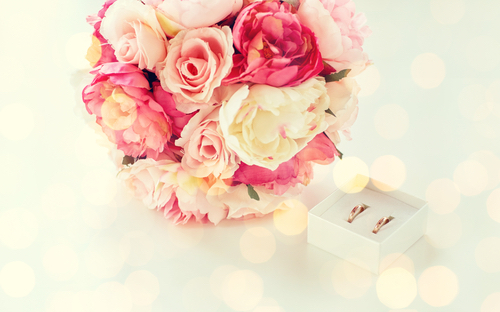Florist can’t refuse to provide flowers for same-sex wedding, state supreme court rules again

Image from Shutterstock.com.
The Washington Supreme Court has ruled again against a Christian florist who refused to provide flowers for a same-sex couple’s wedding on the grounds that it would violate her religion.
In Thursday’s unanimous opinion, the court reaffirmed its 2017 decision, holding that state courts did not act with “religious animus” when they ruled that Barronelle Stutzman and her Arlene’s Flowers business in Richland, Washington, broke the state’s anti-discrimination law.
The Seattle Times, the Washington Times, the Associated Press, Reuters and CNN have coverage.
Stutzman had appealed the case to the U.S. Supreme Court, which returned it to the Washington Supreme Court to determine whether it had been handled with religious neutrality, as guaranteed by the U.S. Constitution.
“We are confident that the courts resolved this dispute with tolerance,” Justice Sheryl Gordon McCloud wrote in the opinion. “The state of Washington bars discrimination in public accommodations on the basis of sexual orientation. Discrimination based on same-sex marriage constitutes discrimination on the basis of sexual orientation.”
Stutzman is represented by the Alliance Defending Freedom, a national Christian nonprofit organization, according to the Seattle Times. The group told the publication that the florist would again appeal her case to the U.S. Supreme Court.
“Barronelle serves all customers; she simply declines to celebrate or participate in sacred events that violate her deeply held beliefs,” John Bursch, vice president of appellate advocacy for the group, told the Seattle Times. “Despite that, the state of Washington has been openly hostile toward Barronelle’s religious beliefs about marriage, and now the Washington Supreme Court has given the state a pass.”
Stutzman had argued that being forced to sell wedding floral arrangements to couple Robert Ingersoll and Curt Freed was equivalent to “compelled speech” because it also forced her to endorse same-sex marriage.
The Washington Supreme Court disagreed, holding that selling flowers was conduct, not speech. As a result, it is not protected under the First Amendment.
“The decision to either provide or refuse to provide flowers for a wedding does not inherently express a message about that wedding,” the court said. “Providing flowers for a wedding between Muslims would not necessarily constitute an endorsement of Islam, nor would providing flowers for an atheist couple endorse atheism.”
Last year, the U.S. Supreme Court issued a limited ruling in favor of Jack Phillips, a Christian baker in Lakewood, Colorado, who had refused to create a cake for a same-sex wedding.
The 7-2 majority in that case ruled that comments made by a member of the Colorado Civil Rights Commission during its investigation of the baker’s actions displayed an anti-religious bias.
See also:
ABAJournal.com: “Alliance Defending Freedom gains influence with Supreme Court wins”
ABAJournal.com: “Supreme Court tells court to reconsider case of florist who refused flowers for gay wedding”
ABAJournal.com: “Supreme Court cites agency hostility in ruling for Christian baker”
ABAJournal.com: “Masterpiece Cakeshop baker refuses to make cake celebrating gender transition, spurring new suit”
ABAJournal.com: “Speech, religion and bias all weighed in Masterpiece Cakeshop case”



